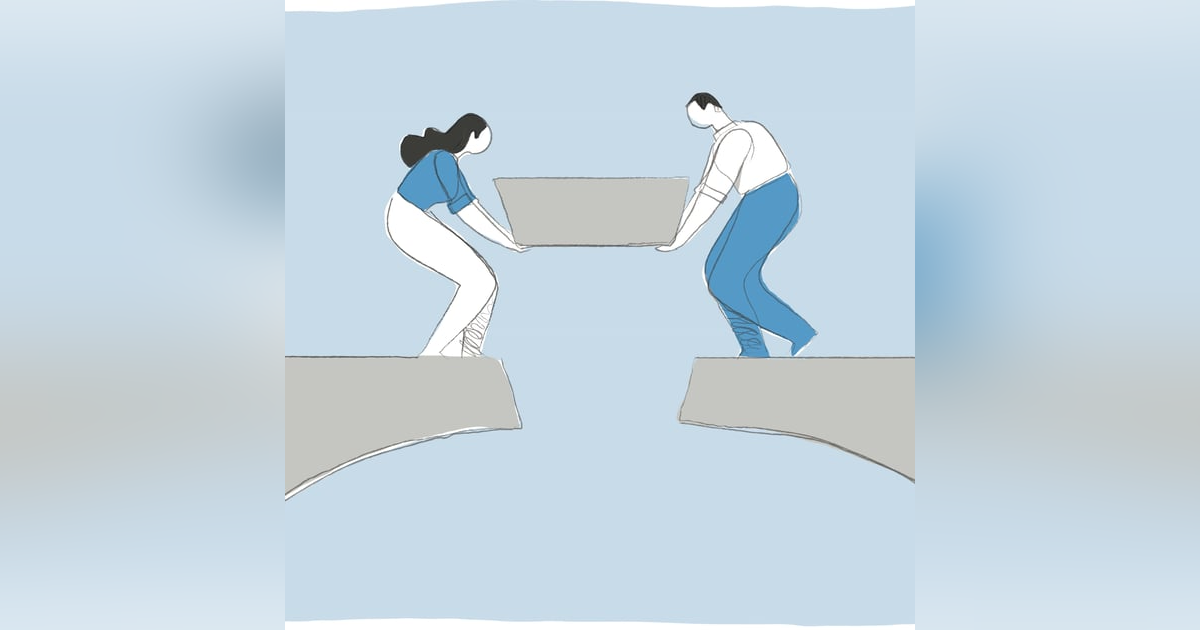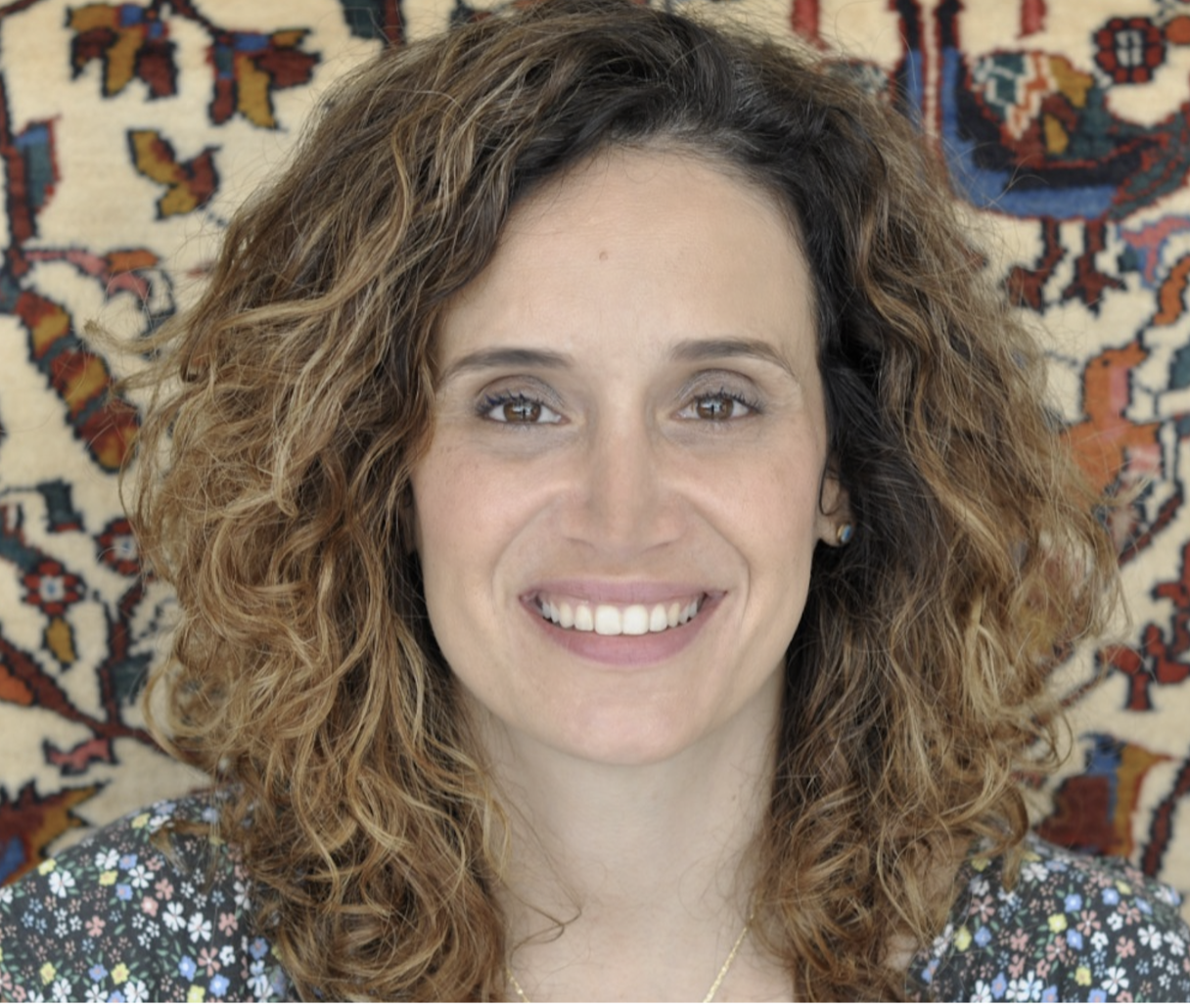We were overwhelmed by calls Guest: Manal Hamdoun Ghandour

In this episode, I spoke with Manal Hamdoun Ghandour who works for a Lebanese NGO that deals with issues of the past, reconciliation and trauma sensitive peacebuilding. She explained the aftermath of the Lebanese civil war; the amnesty law; how the families of the disappeared people reacted to it and reconciliation efforts through AI, all of which can be relevant after the regime change in Syria.
IE: Hello and welcome back to another episode of We Can Find a Way. This podcast is sponsored by Dr. Paolo Michele Patocchi, an attorney at law and arbitrator. I'm grateful for his engagement with alternative dispute resolution in Turkey and beyond by participating in multiple conferences, specifically teaching at Bilkent University in Ankara and now supporting this podcast, We Can Find a Way.
In this episode of We Can Find A Way, I spoke with Manal Hamdoun Gandur who is from Lebanon. I thought it was timely to talk to a person who has been dealing with the issues of the past, trauma sensitive peace building, especially now that we are seeing that a new Middle East is emerging with the developments in Syria and beyond. Manal explained how information technology can be used to talk about the disappeared people and how this can be helpful despite an amnesty law adopted at the end of the civil war in Lebanon.
So I will give her short bio at the end of this episode. But now let's start with the interview that took place on 13th February 2025. It's been quite a while.
Manal, can you please tell me about the amnesty law in Leban of 1991 and why was this considered necessary after the war?
MHG: Hello Idil. And I'm really very happy to be in this conversation today. Thank you for the invitation.
IE: Of course.
MHG: Before I talk to you about the amnesty law and why it was kind of important to maybe implement it at that time, I would like to talk a little bit about thw Lebanese context and why, what were the important reasons behind this amnesty law. So for those listeners who don't know, Lebanon passed through a kind of very hard time from the 1975 to 1990. We had civil war. And the civil war was between the Lebanese themselves, different groups from different sects, regions, religions, and they were just fighting at that time and the physical violence was really strong. This war resulted in the death of 100.000 people and around also 17.000 people disappeared.
This war ended with an agreement called the Taif Agreement in 1989 where all the people that contributed to this war met there and they all decided that “we can end this war if we all agree that no winner, no loser, we just start again”. So, they kind of gave each other this amnesty law, they forgave each other and that was at this time maybe the only way to make the physical violence stop, so no one will be held accountable or responsible.
However, at the same time, if we look at it and the results of this amnesty law, we can tell that this peace is really very shallow, very weak and fragile. We notice that the Lebanese fear from each other still exists. There was no work and no effort to work on dealing with what happened, with the real reasons for this violence, to work on preventing it from happening again. And the most important thing, that all the human rights violations that happened during the war were not recognized, were not acknowledged, especially the victims. There were no reparations for them. And one of them, which is the issue of the missing and disappeared. So those families are still waiting for their loved ones. Until now, they're still waiting just for this like uncertainty and this feeling of ambiguous loss.
IE: This was the kind of “the price” to end the violence. But of course, it didn't respond to the needs of the victims. You know, there is a process, but victims often feel alienated from it. Having understood this context, what pushed the government to adopt the Law of the Missing and the Disappeared in 2018, like after such a long time, from the end of the war?
MHG: The end of the war in 1989, 1990, the government had many attempts, tried several times to find kind of a conclusion to this file or to close it up, by sometimes allowing the families of the missing to come to announce them dead so they can inherit them. But if I want to just summarize it for you, I believe there are two important key factors that played a role in passing this law. The first one, which is the very important one: the determination of the families, that the families, the majority of them refused this, to announce their loved ones dead. And they became like one group, one team, and many years ago, they became an organization. So this pressure by the families of the missing, in addition to the support of many civil society organizations like Act For the Disappeared and the International Committee of Red Cross, helped to draft this law, help to pass it to the Parliament and be agreed on.
Also, there is another key factor that I believe it's really connected to this first one, the content of the law itself. You know, the families, they were really determined and their priority, after doing some assessment for their needs, the first need was the right to know. So writing the law in a way where you can compromise accountability and just keep the right to know, maybe can give kind of relief for those warlords or those that contributed in the war and have information about those kidnapped and missed ones to agree and vote for this war because they know they will not be held accountable as long as they will help in giving information. So, I believe this part of accountability supported the agreement for passing the law at the parliament in 2018.
IE: So their cooperation have been, I guess, sought by the government, if not by the victims families. So that there could be a compromise almost?
MHG: Yeah, hopefully. Because, you know, Idil, the law led to establishing the national commission in 202, but until now National Commission is still not as it should be because that contribution and that support isn't there yet.
IE: What is this National Committee supposed to do? They are supposed to basically look for these people and announce them dead or commemorate them or?
MHG: It's clear in the law: it's the right to know for the families to know what happened to the loved ones. And kind of reparations, maybe financial reparations. Yeah, any kind of reparations, but not an accountability for sure.
IE: Lebanon didn't even have a government until very recently, for a very long time. So I like to think this has also contributed to it as well as other developments, obviously?
MHG: Yes, with other elements as well. Yeah.
IE: Can you explain this digital memorial and memory map that your organization is involved in? I'm thinking civil society organizations like yours are filling in the void or the vacuum. How do they help victims and reconciliation between the communities of Lebanon?
MHG: Honestly, Idil, maybe you have an idea that ACT for the Disappeared works on so many projects and programs with several goals. But regarding the digital platforms that you're asking about, their goals is mainly to first commemorate the memory of the disappeared and secondly to commemorate some sites, locations that are important and are in the memory of the Lebanese themselves.
We started with Fushat Amal in 2018, 2016, actually. This Fushat Amal, sometimes we call it the Facebook of the Missing because each page is for a missing and it speaks with the language of the missing, as if he is telling his story. And the main goal of this project is to allow people to again humanize the missing and understand they're not numbers, the human beings that had normal life, just like all of us. Because we know around 90% of the disappeared during the civil war, just civilians.
IE: Yeah, I read that.
MHG: Who went out to get bread with milk, going to work, going fishing. So we're trying to allow people to know that they were to remember that the normal people from all the areas of Lebanon and now the families from all the areas of Lebanon are suffering as well. So this is the first project, the second project in 2018 which is called the memory map and it's to locate several locations that were so important during the war. And the Lebanese like know that they were so important during the fighting, checkpoints, maybe missing happened there, maybe grave sites. So it's like kind of a map that shows different sites and people that can go through these maps can listen and look at these locations and learn also that this happened all over Lebanon. And the third one was kind of emerging or combining the two together. And it's called Waynoun. Waynoun means “where are they” in English, an Arabic word. And waynoun is the platform that emerges the two to commemorate the missings and to commemorate the memory of the sites together. And it's more like engaging in an interactive platform where the people also can add to it. Of course, we have a team that work on filtering the information, checking for if they're really recommended or reliable information. So yeah, these are the three projects and I believe they're really helpful for the Lebanese people to access them. And it's helpful for also the National Commission's work because they show that there is no area in Lebanon that was away from that suffering. And it's really important to look at it and to see how our memory is similar. We all suffered from that and we all should work on the real causes for this. To avoid it from happening again can help in kind of the reconciliation among the Lebanese.
IE: So how are the recent developments in the Middle East affecting all of these projects that you have just mentioned? Is it going to further the quest for the missing people or reconciliation among the communities? Is it going to help your cause?
MHG: Well, you know, with what happened lately, when I say lately, maybe it's not necessary only with the fall of Assad regime. Let me give you an example. When ISIS lost their many detention centers and prisons that were opened, the Lebanese people felt like “oh, maybe my loved ones are there” because they were told that they're in Syria. And now with the fall of Assad regime as well, I can't tell you idiI, how much the civil society organizations, the Family of the Disappeared organization and the ICRC, we were all overwhelmed with phone calls. People like just rushing to see if they can find finally after 40 years, their loved ones. It's really a kind of torture. Ambiguous loss is considered kind of torture in human rights. Yes, it kind of swinging, putting the families in this roller coaster of up and down. “Maybe we'll find our loved ones, maybe not”. And more prisons are being opened now. Also what's happening in Gaza? I mean, if I want to talk about the whole region now, we have thousands of missing under the rubbles from the Palestinians and more are being taken also by the Israeli Army. So it's like an ongoing torture, ongoing file. It's not closed. Looking at it this way, we see that maybe it's good likw if we see the Syrian prisons are open. But at the same time when regimes change, it's also hard to restart diplomatic communication between the two states from zero again because before we had our ex president Michel Aoun, who asked President Assad at that time if there were any Lebanese prisoners or missing at their prisons. And he was like very sharp saying “we have zero”. And now of course we discovered no, there were like a small number of prisoners who came out of the prisons.
IE: Wow! After how many years they were alive and they were there. It's amazing for the families, I cannot even imagine them.
MHG: Yeah, but we were not like kind of missing it were like more like prisoners. So.
IE: Okay, okay. I got excited, carried away all of a sudden. Sorry.
MHG: But there's still like more present and the families as you said, Idil and you're not a family. So we can put ourselves in their shoes and feel how they feel. It's really not an easy mission for the National Commission in Lebanon to do. But yeah, we're just like waiting for how things will progress. Maybe a positive thing that with all this progress of technology and the development of the things like forensic science, collecting data, the AI, things are becoming a little bit easier in connecting all the dots together to know about the fate of the missing by matching maybe DNA.
IE: DNA…are grave sites still being found in random places in Lebanon?
MHG: If you want to talk about mass graves, we, nobody knows where the mass graves are in Lebanon. It's process that hasn't started yet.
IE: Okay. Anything you would like to add?
MHG: I would like really to just wish everyone suffering to end and this will not happen until everyone deals with their past to reach to a real reconciliation and real peace, not a fragile one. I believe so much in the power of youth because of my experience in dealing and arranging so many sessions all around Lebanon. I can see how the youth are the ones that we can have hope on. Because when you talk to them and when you tell them about their past and how ask them for some recommendations all their recommendations are very positive and open. And you kind of see that their narratives change when you allow them to understand what happened. Because their narratives usually are only the narratives of parents. We don't even have anything about the civil war in our history books. So they're not educated in this matter. And that fear from the others still exists. So I think the hope in Lebanon lies in its its youth.
IE: Manal, thank you very much.
MHG: Idil, thank you.
IE: Manal Hamdan Gandur holds a Political Science degree and an MA in Education and Curriculum Design. She has been working on human rights and education for over 25 years in Lebanon and Nigeria. She currently serves as the Project Coordinator of an NGO called Act for the Disappeared, a Lebanese human rights organization working on dealing with the past, peace building and human rights through the issue of the missing and disappeared in the Lebanese War. Manal has extensive experience in designing courses for training teachers and for cultivating compassion and empathy in different environments. She actively leads discussions and activities related to transgenerational trauma, dealing with the past and trauma sensitive peace building.
So that's it for now. If you like this episode, please follow this podcast.This podcast's website is www.wecanfindaway.com and it contains a transcription of the episode. If you would like to rather read it than listen to it. Like it, share it and also please like the excerpts I share in the Instagram account of We Can Find a Way. I also share excerpts in LinkedIn and Blue Sky. We Can Find a Way is in many platforms as podcasts available YouTube, Apple and Spotify to begin with. Please follow the podcast in one of these platforms.
As always, I like to close by thanking musician Imre Hadi and artist Zeren Goktan who allowed me to use their music and photograph in the podcast. Thank you and hope to meet you in the next episode.

Activist
Manal Hamdoun Ghandour holds a Political Science degree and an MA in Education and Curriculum Design. She has been working on human rights and education for over 25 years in Lebanon and Nigeria. She currently serves as the Project Coordinator of an NGO called Act for the Disappeared, a Lebanese human rights organization working on dealing with the past, peace building and human rights through the issue of the missing and disappeared in the Lebanese War. Manal has extensive experience in designing courses for training teachers and for cultivating compassion and empathy in different environments. She actively leads discussions and activities related to transgenerational trauma, dealing with the past and trauma sensitive peace building.






